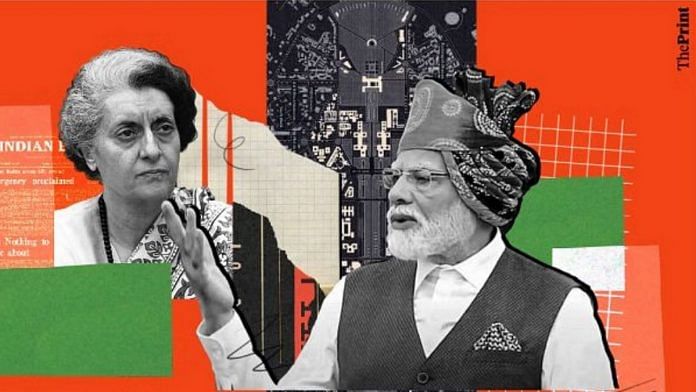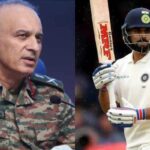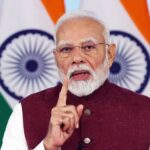And then came Trump’s claims about “mediating” the ceasefire between India and Pakistan. US Secretary of State Marco Rubio followed it up with the announcement that the two countries would hold talks at a neutral site. These announcements outraged the Far-Right. Talk about what and why? They wanted Pakistan to beg for peace, not sit across the table and negotiate. Indian officials have been quick to deny Trump and Rubio’s claims unofficially. Their reluctance to do so officially, though, is a bit perplexing.
Anyway, the Far-Right’s expectations of Pakistan being reduced to rubble this time have been belied by the ceasefire. If wishes were horses! PM Modi has every reason not to escalate the conflict. If you wrestle with a pig, you have mud all over you. Pakistan is like that pig. A failed nation has nothing to lose. India is a global powerhouse, on track to become the world’s third-largest economy. It can’t allow a rogue neighbour to distract it.
Over to politics now. What does the ceasefire do to Brand Modi?
“Proud of our Armed Forces, Jai Hind!” Rahul Gandhi tweeted last Wednesday morning. That was hours after India launched strikes on terror hubs in Pakistan and Pakistan-occupied Kashmir. The Opposition leader’s message wasn’t so subtle. He credited the defence forces for Operation Sindoor but wouldn’t give any credit to PM Modi or his government.
Several Congress leaders close to Rahul Gandhi told me earlier how the scion of the Nehru-Gandhi family often rued in private conversations that the Manmohan Singh government should have attacked Pakistan after the 2008 Mumbai terror attack. When it comes to Pakistan, claim Congress leaders, Gandhi is as much a hawk as anyone else. But he wouldn’t praise PM Modi’s repeated lessons to Pakistan—surgical strike in 2016, Balakot air strike in 2019, and Operation Sindoor now.
He is now demanding a special Parliament session to discuss the Pahalgam terror attack, Operation Sindoor, and the ceasefire “first announced by US President Trump”. In a letter to PM Modi, Gandhi wrote: “This will also be an opportunity to demonstrate our collective resolve to meet the challenges ahead.”
Given the way Congress leaders have been trying to contrast Indira Gandhi’s defiance of the US in 1971 with Modi’s acceptance of the ceasefire now, what Rahul wants to demonstrate in Parliament is anybody’s guess.
Multiple Congress leaders I spoke to listed the issues they plan to raise with the government—intelligence failure in Pahalgam, India’s purported isolation at the IMF meeting, the need for ceasefire and US President Trump’s role in it, the purported internationalisation of Kashmir with Trump’s mediation offer, and international media reports about the downing of Indian fighter jets, among others. On the last point, Air Marshal AK Bharti on Sunday that losses are part of a combat scenario and details couldn’t be discussed in an ongoing operation. India also downed Pakistani planes.
There is nothing wrong with the Opposition questioning the government’s decisions as long as our armed forces are kept out of political warfare. The fact is, politically, PM Modi has already emerged victorious.
Operation Sindoor has revalidated and cemented his government’s doctrine. This latest conflict was the penultimate stage in the evolution and demonstration of Modi’s anti-terror doctrine: crossing the Line of Control in PoK for the surgical strike on a terror training camp in 2016; entering Pakistan to conduct air strikes on a terror camp Balakot in 2019; and now, sending drones and missiles deep into Pakistan, first to target terror infrastructure and then military installations. These are three incremental phases in India’s anti-terror blueprint, with a full-scale war in the fourth and final phase. Pakistan will have to think a million times before launching another terror attack. Because the next one will mean a full-fledged conflagration.
India’s anti-terror response is no longer episodic, knee-jerk, or driven by political exigencies. PM Modi has developed an anti-terror doctrine. He has set a template that his successors—no matter from which party—won’t be able to divert from or abandon. It has become an unwritten national security code. And that finally defines PM Modi’s legacy.
We as Indians grew up with a bruised psyche, always looking over our shoulders. Stay away from Kashmir, part of our own country. Avoid theatres, malls, or other crowded places, especially during festive seasons. The very sight of a seemingly abandoned bag at an airport, railway or bus station would give goosebumps. It was high time a government did something drastic to address these deep-seated fears in us. That is PM Modi’s legacy.
That the Congress would try to belittle it by talking about Indira Gandhi’s defiance of then US President Richard Nixon during the 1971 war is par for the course. BJP leaders are also wrong in trying to belittle her achievement. She was a hero of that era, a legacy she tainted with the Emergency. PM Modi’s war on terror potentially makes him the hero of 21st century India—a legacy BJP leaders should celebrate, not spoil by undermining India’s achievement in 1971.
(Edited by Asavari Singh)








